Iron rods, especially TMT bars, which are short for thermo-mechanically treated bars, are utilized in construction activities to impart strength and resilience to houses, buildings, and other structures in the construction industry. The manufacturing process of these bars is peculiar as it integrates thermal and mechanical treatments that are absent in traditional steel bars, thereby making the TMT bars better. The principal reason why TMT bars are commonly used in the construction of diverse kinds of structures like buildings, bridges, dams, and other infrastructure projects is their superior strength or potency coupled with their malleability and rust resistance. These are commonly known as “Saria.”
Post your Requirement
Advantages Of Using TMT Bars
The TMT bars or Saria are strong, sturdy, and reliable structures that are widely used in the construction industry due to their ability to enhance the longevity and safety of structures while ensuring cost-effectiveness. Other than that, some out qualities of the TMT bars that make them the core of the construction industry are as follows:
- Enhanced Strength-to-Weight Ratio: The TMT bars are lighter in weight as compared to other relevant options. They have such a structure that they can exhibit greater strength along with a lighter weight. Due to their lightweight nature, they are easy to handle and can be easily transported, which helps to save a lot of time during the construction process.
- Flexible And Durable: These bars are extremely flexible, as they can be easily bent into different shapes and molded as per the requirements. The TMT bars or Saria can withstand high pressure and even potential wear and tear at high temperatures. These Thermo-Mechanically Treated bars require low maintenance as they are resistant to rust and corrosion. Their versatility makes them so special, and suitable for wide use in the construction process.
- Better Bond Strength With Concrete: Concrete, which is one of the most essential elements of the construction industry since it binds the entire structure together, has excellent bonds with the TMT bars. These Saria have a ribbed surface, that ensures an increased area for contact thereby increasing the bond between the bars and concrete.
- Resistant To Corrosion, Fire, And Seismic Waves: The materials used in any of the construction processes should be fire-resistant and not prone to corrosion. The TMT bars fulfil both of these criteria, which makes them a safer choice for construction. Apart from this, these bars have superior seismic resistance. The unique properties of controlled cooling and self-tempering allow the TMT bars to dissipate energy during earthquakes, thus protecting the structural integrity of the structure and ensuring the safety of the residents.
- Reduction in Construction Time And Cost: The TMT bars offer numerous advantages in terms of reduced time in the construction process and efficiency in the overall cost of the project. These bars are easy to handle and their maintenance cost is low. They are widely available in standard sizes, thus easing the process of construction.
Suggested Post: What Is TMT Bar And Uses Of TMT Bars in Modern Construction Projects?
Key Features And Properties Of TMT Bars In India
The TMT bars or Saria serve to be the backbone of the modern construction industry offering high standards of strength, durability, and flexibility in a diverse range of applications. The TMT bars contribute to the building of long-lasting and secure structures with its premium range of features and properties, some of which are as follows:
- High Strength: To withstand tough loads and stresses, the high-quality TMT bars come with high yield strength and tensile strength. Up to now, maintaining the structural integrity of buildings as well as other construction projects would not have been possible without this high strength.
- Ductility: TMT bars are very flexible and can be bent without breaking, a key property that ensures the suitability of TMT bars in earthquake-prone areas. The Saria or TMT bars are designed to endure seismic activities and other dynamic loads and offer long-term performance against diverse challenges.
- Corrosion Resistance: TMT bars have a strong and versatile surface that resists corrosion by being tough and tough-skinned, hence making buildings last longer, particularly in areas with high levels of humidity.
- Weldability: One of the key properties of the TMT bars is that they are designed to be good for welding and thus can easily be combined with other steel components to ensure their applicability in different applications. Besides, flexible design and construction techniques ensure superior performance in complex construction applications.
Top TMT Bar Brands/Manufacturers In India:
Due to their superior tensile strength, resilience, and corrosion resistance, TMT bars are indispensable in construction. Different companies create distinct qualities because there are several manufacturers of TMT bars. Certain top brands are highly regarded in the TMT market, and they include the following:
- Tata Tiscon: Tata steel tiscon TMT bars from Tata Tiscon are well-known globally for the durability of TMT bars made by Tata Steel. These bars have an exceptional level of strength, which improves with age because they are made from top technology while still maintaining their ductility. Different grades provide a diversity of options for builders, while one of their outstanding properties includes being resistant to corrosion as well as being weldable.
- JSW Neosteel: JSW Neosteel TMT bars from JSW Steel are well known for their uniform quality and consistency, as they pioneered the production of TMT bars in eastern India. These advanced production processes create TMT bars that provide high tensile strength and excellent ductility, enabling them to be used for various construction applications, such as high-rise buildings or infrastructure developments.
- SAIL TMT: SAIL manufactures SAIL TMT bars renowned for their hardy nature and longevity, though they last longer still. Tempcore technology is employed by SAIL in producing TMT bars that have better mechanical features and hence exhibit higher yield points while remaining malleable. Owing to the predictability of these bars in different atmospheric states, many people often employ them in erecting apartments, places for business activities like offices or shopping malls, as well as infrastructural undertakings.
- Kamdhenu TMT: When Kamdhenu Group brings forth the Kamdhenu TMT bars, they know that what they have achieved is bars that are resistant, flexible, and on par with the standards of quality universally. Advanced technology from Germany is utilized by Kamdhenu in the production of these bars, which are of standard quality because they are all the same in terms of quality. This is the reason why, whenever earthquakes happen so frequently, these bars can resist them, hence becoming preferred over other kinds found in seismic areas. Similarly, their resistance against rusting is what makes them appropriate for use when constructing houses close to oceans or any other salty body of water.
- Vizag Steel: The TMT bar industry has another famous name Vizag Steel, which is manufactured by Rashtriya Ispat Nigam Limited (RINL). These are reputed characteristics: good character, technology, durability, and high strength these days. Various construction works employ Vizag Steel TMT bars due to their latest process, ensuring technological technicality and meeting performance standards. At many construction sites, residential houses, andites, houses, and bridges, among others.
- Shyam Steel: In the TMT bar market, Shyam Steel is a distinguished and inventive way of manufacturing. Shyam Steel employs technology equipment for its TMT bars to improve their tensile strength, malleability, and corrosion resistance. Shyam Steel produces its TMT bars with equipment technology, which enhances its tensile strength, ductility, and corrosion resistance. They offer this product in various categories along with various sizes to suit different building requirements. This has also made them popular with most building contractors due to their guaranteed reliability as well as their performance abilities.
Read in Detail: Top 10 TMT Bar Manufacturers in India
Different Grades Of TMT Bars
The TMT bars, commonly called saria, are available in various grades. Each of these parameters has an exact numerical significance, the numerical values symbolize the least tensional strength on the TMT bars. These bars are calibrated in megapascals (MPa).
- Fe415: This grade has a minimum yield strength of 415 MPa. Due to this, it is suitable for the construction of residential buildings, which require moderate strength.
- Fe500: It has a high tensile strength of 500 MPa in comparison to the previous one, making it fit to construct bridges and buildings that bear heavy loads.
- Fe550: Fe550-graded TMT bars yield strength of 550 MPa, which has a higher tensile strength and is ductile, which ensures toughness against heavy loads. These TMT bars are therefore used in the construction of various industrial projects.
- Fe600: This is considered one of the best grades of TMT bars since it has a high yield strength of 600 MPa. It can keep the structure intact during extreme weather conditions. The TMT bars of this grade are designed for a specialized construction project.
Appropriate Grade Selection Based On The Project Requirements
A few things must be kept in mind before selecting the grade of the TMT bars. The factors are given below:
- Structural design: The type of structural design is extremely important in determining the suitable grade of TMT bars. The appropriate grade of TMT bars depends on the load-bearing capacity of the structure and the type of structure.
- Safety factor: Safety is the top priority of any contractor, and there should be a detailed inspection to ensure that the materials used in different TMT bars adhere to the safety standards. It is crucial to select good quality labels to ensure the binding of different materials used in the construction of buildings.
- Local building codes and standards: It is essential to comply with the local norms and rules of the buildings and adhere to the standards. These local regulations may prescribe a specific label depending on the weather conditions, regional factors, floor-prone areas, seismic zones, etc.
- Project Budget: The budget of the entire project greatly influences the quality and grade of the TMT bars used. Since the higher-grade TMT bars have high tensile strength, they are costlier than the lower-grade TMT bars.
It is always advisable to hire a professional building contractor or turnkey contractor to ensure that the best grade is chosen, keeping in mind the requirements and budget of the customer.
Steps Involved In The Thermo-Mechanical Treatment Process
- Raw materials used in TMT bar production: The very first step involved in the manufacturing process of TMT bar production is to carefully choose the kind and quality of raw materials to be used to produce high-quality steel billets. A strict procedure of inspection is carried out to make sure that the selected raw materials, which are iron ore, coal, and limestone, are good enough to manufacture quality TMT rods.
- Thermo-Mechanical Treatment Process: This stage is meant to impart the needed qualities to the TMT bars to ensure that they work better. The production commences with steel billets being heated to approximately 1200 °C inside rolling mills. Following this, the hot billets travel through various sets of rollers, henceforth diminishing their cross-sectional size before assuming the desired shape. On completion of the rolling process, the bars cool down fast through a method known as quenching.
- Quenching process to enhance the TMT bar properties: Quenching is important as it helps in forming a hardened surface, which eventually gives the TMT bars high tensile strength.
- Increased strength: The process of quenching helps in creating a hardened outer layer, which ultimately gives a high tensile strength to the TMT bars.
- High Ductile: This property enables the TMT bars to be moulded into different shapes and can be bent easily, which is quite beneficial for the construction process.
- Reduced corrosion: The TMT bars are not prone to corrosion due to the process of controlled cooling, which minimizes the residual stresses, thereby preventing corrosion.
TMT Bars: Price in India (Citywise)
The TMT bars or Saria are the high-strength and highly durable structures that are used in the construction of every other structure due to their ability to set a foundation of longevity for buildings. The TMT Bar prices vary depending on a variety of factors such as the supplier, grade, diameter, market conditions, and numerous others. However, in a general sense, the TMT Bar prices in different cities in India can be estimated as below:
|
City Name |
8 MM* |
10 MM* |
12 MM* |
16 MM* |
|
Bhavnagar |
60680 |
58910 |
58910 |
58910 |
|
Chennai |
60444 |
58674 |
58674 |
58674 |
|
Delhi |
61624 |
60444 |
58084 |
59264 |
|
Durgapur |
55016 |
53246 |
53246 |
53246 |
|
Ghaziabad |
60798 |
59618 |
57258 |
58438 |
|
Goa |
60326 |
58556 |
58556 |
58556 |
|
Hyderabad |
57140 |
55370 |
55370 |
55370 |
|
Indore |
61860 |
60090 |
60090 |
60090 |
|
Jaipur |
59854 |
58674 |
56314 |
57494 |
|
Jalna |
60444 |
58674 |
58674 |
58674 |
|
Kanpur |
59028 |
57258 |
57258 |
57258 |
|
Kolkata |
55606 |
53836 |
53836 |
53836 |
|
Mandi Gobindgarh |
60208 |
59028 |
61388 |
62568 |
|
Mumbai |
60562 |
58792 |
58792 |
58792 |
|
Muzaffarnagar |
60798 |
59618 |
57258 |
58438 |
|
Nagpur |
60090 |
58320 |
58320 |
58320 |
|
Raigarh |
54780 |
53010 |
53010 |
53010 |
|
Raipur |
55842 |
54072 |
54072 |
54072 |
|
Rourkela |
55960 |
54190 |
54190 |
54190 |
*Todays tmt bar prices(per ton)
- All dimensional tolerances are as per BIS standards.
- The above prices are inclusive of all taxes.
Key Factors That Impact The Price Of TMT Bar
The costs of the TMT bars in India depend on a variety of factors as the costs of raw materials like iron ore, coking coal, limestone, natural gas, electricity, and many more that can impact the steel prices in India. Additionally, the labor and operating costs associated with the steel factories also impact the TMT bar prices in India. Some of the key factors that impact costs include the following:
- Raw Material Prices: One of the key factors that determine the TMT bar prices is the cost of the different raw materials such as iron ore, coking coal, scrap metal, and others. Any fluctuations in the global or domestic prices of these materials can affect the production costs and thus overall costs of the products.
- Demand And Supply: Another essential factor that determines the TMT bar prices is the demand and supply dynamics. In case of an increase in demand but low supply, the prices are supposed to be higher and in the case of optimum supplies, prices are often competitive. Therefore the high demand from construction, real estate, and infrastructure projects increases prices, while seasonal slowdowns (e.g., monsoon) reduce them. Supply shortages can also drive prices up.
- Government Policies & Taxes: The different kinds of taxes and duties can also affect the pricing structure of TMT bars in India. The import duties of materials, GST, and export regulations can influence the prices of TMT bars. Therefore in case of any changes in the government polices and subsidies, the market rate of TMT bars is bound to change.
- Manufacturing & Logistics Costs: The production costs of different grades of TMT bars depend on the energy costs spent on electricity, fuels, and others along with labor expenses. Additionally, the distribution of TMT bars depends on various modes of transportation. Therefore the connectivity in aunty areas and the transportation costs impact the final price of the TMT bars.
- Time And Weather Conditions: The demand and supply dynamics of the TMT bars depend on the weather conditions of the region as well. Like in the monsoon season, the TMT bar prices are comparatively lower due to less construction work. On the other hand, when the construction work is frequent but production is nominal, the prices are comparatively higher.
- Global Market Trends & Exchange Rates: The international steel prices, the trade tariffs, and the fluctuations in the currency exchange mechanism also have some significant impacts on the TMT bar costs in India. This affects the costs of imports thereby making the structure expensive for the Indian population.
Conclusion
With their unique manufacturing process and superior properties, TMT bars are indispensable in guaranteeing the safety, durability, and efficiency of structures across different sectors, as they represent a substantial leap in construction materials in which high strength, ductility, and corrosion resistance are combined to meet the demands of contemporary construction.
The construction sector is going through a revolution, and as a result, there is a likelihood that the use of TMT bars will increase, which will contribute to the creation of indestructible structures as well as those that are eco-friendly around the globe.
Read Also: TMT Bars: Properties, Types, And Importance
FAQ’S
Q:1 Can TMT bars withstand high temperatures?
A:1 The TMT bars are designed to withstand high temperatures and still offer superior performance and durability. They can endure temperatures ranging from 450 to 600 degrees Celsius without significantly losing their structural integrity. They are also considered to be fire resistant to some extent due to this factor.
Q:2 What is the price of TMT Saria per kg today in India?
A:2 The TMT Saria price fluctuates depending on a variety of factors such as the location, grade, size, thickness, supplier, market demand, and others. However, in a general sense, the TMT bar prices today range from Rs.72 to Rs.92 per kg.
Q:3 Which grade of TMT bar is best for a roof?
A:3 With a good balance of strength and ductility, the TMT bar grades including the Fe 500 or Fe 550D are considered to be the best materials for roofing applications. The Fe 500 or Fe 550D is designed to withstand heavy loads and stresses that are often encountered in roofing structures. Additionally, the “D” in Fe 500D stands for “ductility,” which indicates superior higher elongation properties, which can be greatly beneficial in areas prone to seismic activity.
Q:4 Which company is best for TMT Bars in India?
A:4 There are a plethora of TMT bar brands in India but the best choice depends on a variety of factors such as strength, corrosion resistance, and seismic resistance. You can go for TATA Tiscon for superior strength and durability, JSW Neosteel for the high corrosion resistance properties and ductility, Kamdhenu for good quality and affordable prices, SAIL TMT for excellent quality and reliance on government and Electrotherm TMT (ET TMT) for high thermal stability and other essential properties.
Q:5 What is the expected lifespan of TMT bars?
A:5 The lifespan and performance of TMT bars vary based on a variety of factors such as the quality of raw materials, manufacturing practices, environmental conditions, construction projects, and maintenance practices. However, in a general sense, the TMT bars offer a lifespan of around 50-70 years thereby long-term peace of mind.

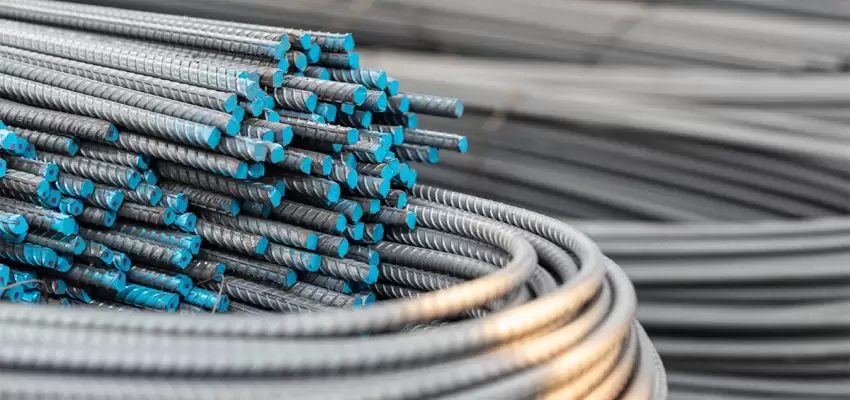
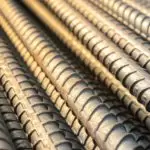
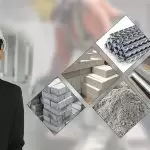
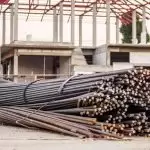
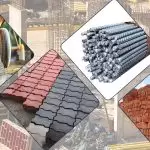

















Post A Comment